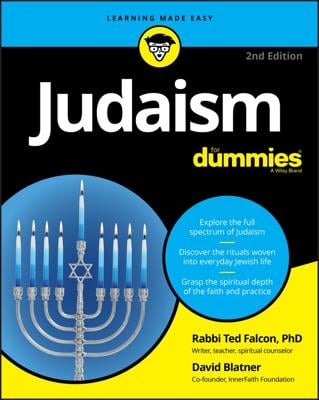Jewish funerals usually take place in a synagogue, funeral home, or at a cemetery. By tradition, Jewish funerals are simple (symbolizing the belief that people are all equal in death), but they vary widely and have no set liturgy.
Sending flowers to a funeral or mourner's home is strongly discouraged in Judaism. Not only will the flowers wither and die in a few days (reminding everyone of the painful loss), but it's also trying to "pretty up" or hide a stark reality. Instead, simply offer your presence. It's customary, however, to give to a charity in memory of the one who died.
Just before the funeral, close relatives of the deceased observe the rite of k'riah, making a small rip — in a tie, a coat, a blouse, or perhaps the sleeve of a dress — as a symbol of grief. Many Jews pin a black ribbon to their jacket and then tear that. The point is that Judaism doesn't want you to just show up; it wants you to really show your grief, without regard to vanity or decorum, and the k'riah is like ripping open a bag of grief to allow the tears and strong emotions to fall out.
All men should wear a dark kippah (yarmulke) in the synagogue and at the gravesite as a sign of respect. One is usually provided if you don't have one.
![[Credit: ©iStockphoto.com/Tova Tietelbaum 2009]](https://www.dummies.com/wp-content/uploads/335663.image0.jpg)
Because idle conversation is generally discouraged during a funeral, it's best to remain silent or only participate in the prayers during the service.
At the end of the funeral, when the casket is lowered into the ground, the closest family or friends throw the first dirt over it, often using a shovel or even their hands. By having the mourners actively participate in the burial — to hear the earth landing on the casket — Jewish tradition ensures that people recognize the reality of death and helps them begin the process of letting go.
After the burial, rabbis often ask friends and more distant relatives to stand in two lines so that the immediate mourners can walk between them — a symbol that they aren't alone and that there is support for their grief. Those assembled say, "Ha-Makom y'nachem etchem b'toch sh'ar av'lay Tzion Veerushalayim." (May God comfort you together with all the mourners of Zion and Jerusalem.")

